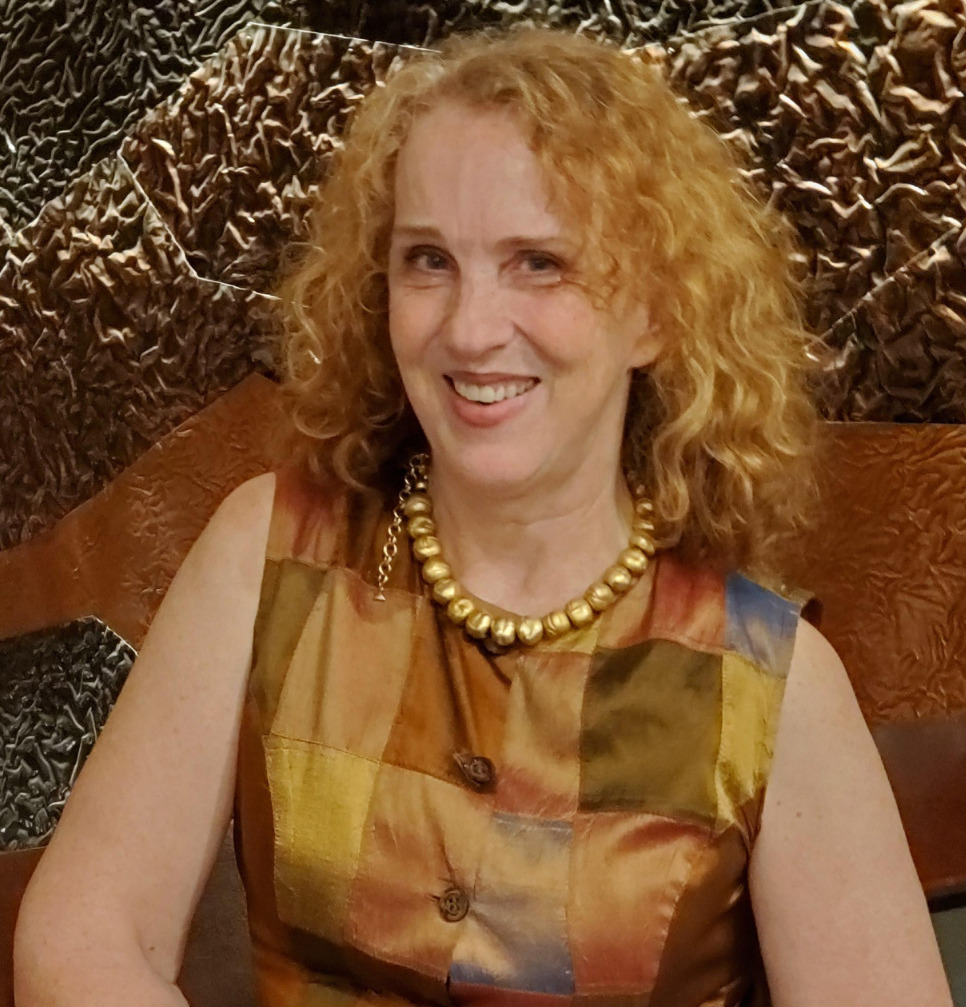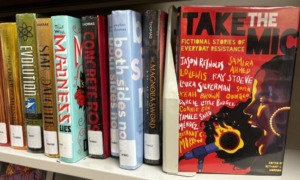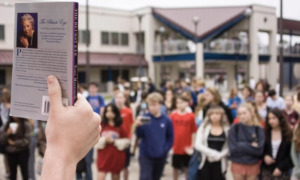How could a book called “Love in the Library” — literally a book about two people with a love for reading discovering love — be the latest casualty (or near casualty) in the war of words over what is readable?
Recently, NPR posted a story entitled “Scholastic wanted to license her children’s book — if she cut out the part about ‘racism’”. The story is about how author Maggie Tokuda-Hall’s Japanese American grandparents met in a library in an internment camp during World War II and discovered “improbable joy” amidst terrible injustice. Requesting an edit to the author’s note, Scholastic’s email referenced a “politically sensitive” moment for its market and a worry that the note’s reference to “the deeply American tradition of racism” “goes beyond what some teachers are willing to cover with the kids in their elementary classrooms.”

Courtesy of Merita Irby
Merita Irby
“This could lead to teachers declining to use the book, which would be a shame,” the email continued.
Maggie Tokuda-Hall responded with “a hard no” – publicly posted to her website. Scholastic publicly apologized and offered to publish the book as is. Tokuda-Hall considered their offer but, according to the New York Times, turned them down as she was not convinced by the company’s efforts.
The battle over books continues. Shocking though somehow not surprising, this news story reflects a reality in which ban attempts are hitting record highs and states are moving to limit teaching of information about race, gender and sexual orientation.
[Related: US book ban push draws students, parents and librarians into national fight]
Yet, the story also reminded me of how I first heard of the internment of Japanese Americans during World War II, and it wasn’t in history class. It was through a book — recommended to me by the teacher of American Literature in my junior year of high school. “Farewell to Manzanar” was the story of a girl my age, incarcerated at Manzanar with her family when she was navigating high school in the 1950s while reconciling what it meant to her to be both Japanese and American (nominated for spring carnival queen she wears a sarong to the school assembly). The images of the camp and of her high school are still vivid in my imagination.
Mr. Deatherage, my American Literature teacher, challenged us — to think, to write, to see outside of our small dusty town in Eastern Washington state. He started us off slowly, with the “Scarlet Letter,” an exploration of oppressive patriarchal and deeply hypocritical religiosity in a land of supposed religious freedom. He stood on top of a desk bellowing out Walt Whitman’s “barbaric yawp” — sounding like the voice of God.
He built for us a syllabus that traveled through time —Walden, Thoreau, Frost, Faulkner — picking up speed in the modern era. Chaim Potok’s “My Name is Asher Lev.” Maya Angelou’s “I Know Why the Caged Bird Sings.” Toni Morrison’s “Song of Solomon.” A book a week into neighborhoods and worlds that were unlike our own and challenged our assumptions about what it was like to grow up in America. By spring he was playing Jimi Hendrix’s rendition of The Star-Spangled Banner at Woodstock, exploding bombs and all. It was an exhilarating class. He was our favorite teacher — not just for the literary crowd but for my “athlete-plus-math/sciences” older brother and scores more like him.
Mr. Deatherage loved to see our gears turn. He’d put the content in front of us and challenge us to challenge ourselves. Once, when I noted with some relief that it was a good thing the Klan was a thing of the past, he challenged me to do an extra research project on the white supremacists living just a few hours away in northern Idaho. (He just handed me one news article and told me to come back with more.)
My parents knew we loved Mr. Deatherage’s class. They knew that is where I learned to write. I never knew what my parents thought of the books, however. Dad was a Baptist preacher so there were conversations to be avoided — blasphemy, sexuality, doubt — but I felt I was pretty safe because Mom was herself a teacher of art and literature. She knew these were also stories filled with compassion, endurance, wisdom, and, yes, “improbable joy.”
It is hard for me to imagine who I would have become without Mr. Deatherage’s fifth hour class on the second floor of the language arts wing. Reading had always been a way for me to travel the world. But in that linoleum tiled room with the harsh fluorescent lights, I traveled back through time and into the present day through the voices of people who had a vastly different experience of growing up in this country. (I later took Mr. D’s approach into my own teaching — this time with a combined history/literature class for eighth graders in East Palo Alto — a book a week through “Roll of Thunder Hear My Cry” and “I Heard the Owl Call My Name…”and “Farewell to Manzanar.”)
While reflecting on this story, I looked up Mr. Deatherage online. I wasn’t surprised to find that over a decade ago he was in the news in my hometown paper. Why? Because of an opinion piece he’d written about a banned book by an indigenous author from Washington State. His piece was entitled: “Classroom best place for controversial novel.” But of course.
***
Merita Irby, co-founder of the Forum for Youth Investment, is a partner at Knowledge to Power Catalysts.
































